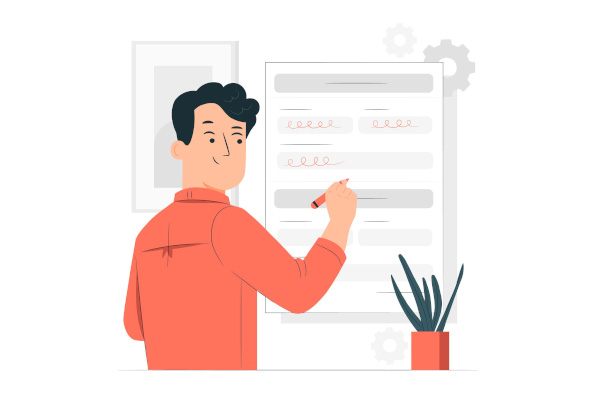Settling Debts During LLC Exits: Agreements and Strategies for 2025
When Sarah Martinez decided to exit her 40% stake in a thriving digital marketing LLC, she thought the hardest part would be valuing her ownership...
8 min read
LegalGPS : Jun. 24, 2025
Exiting an LLC isn’t just about selling your business or dissolving the entity—it’s also about handling any outstanding debts responsibly. Unpaid business loans, vendor invoices, tax liabilities, or lease obligations don’t simply disappear when you leave. If debts aren’t settled correctly, they could reduce your sale price, follow you personally, or cause legal trouble down the road.


Legal GPS Pro
Protect your business with our complete legal subscription service, designed by top startup attorneys.
Whether you’re selling the business, transferring ownership, or shutting it down, understanding how to manage your LLC’s debt is crucial for a clean and risk-free exit.
Before making any exit decisions, take a full inventory of your LLC’s outstanding debts. Buyers, business partners, and even state agencies will expect you to resolve or account for these obligations before completing an exit.
One of the biggest misconceptions about LLC debt is that it’s always separate from personal finances. While LLCs are legally distinct entities, some debts may still be tied to you personally.
Review all loan documents and lease agreements to see if you personally guaranteed any obligations. If you did, even if you exit the LLC, creditors can still come after your personal assets for repayment.
If you personally guaranteed a loan, selling or dissolving your LLC won’t release you from liability. Always clarify whether personal guarantees can be renegotiated, transferred, or settled before finalizing your exit.
Selling your LLC while it has outstanding debt is possible, but it complicates the deal and affects how much you walk away with. Buyers will factor liabilities into their offer, and some may even require you to settle debts before closing. The key is understanding how to handle debt so it doesn’t derail the sale.
Buyers are naturally cautious when dealing with an LLC that carries debt. Common concerns include:
Mike ran a small manufacturing LLC with $80,000 in equipment loans. Instead of paying off the debt before selling, he negotiated with the buyer to assume the remaining loan balance in exchange for reducing the purchase price by $50,000. The buyer agreed since the equipment was necessary for operations, and Mike avoided a lump-sum payout while still securing a profitable exit.
If you’re exiting an LLC but the business will continue under the remaining members, your share of debt obligations must be clearly addressed in the buyout agreement. Whether you’re being bought out voluntarily or due to a dispute, failing to settle debt responsibility can create legal and financial headaches later.
In most cases, LLC debts stay with the business, meaning the remaining members assume responsibility. However, there are exceptions:
If your name is attached to any business loan, lease, or credit agreement, the remaining members may need to:
A properly drafted Buyout Agreement should clarify:
Don’t assume you’re free of debt just because you’re no longer a member. Work with an attorney to ensure the buyout agreement explicitly releases you from liability. If lenders won’t remove your name from personal guarantees, negotiate a legal indemnification from the remaining members.
If you’re dissolving your LLC while it still has outstanding debts, you need to follow the correct legal process to ensure creditors are handled properly. Failing to settle debts before dissolution could leave you personally liable or create legal complications down the road.
Before officially dissolving your LLC, you are required to:


Legal GPS Pro
Protect your business with our complete legal subscription service, designed by top startup attorneys.
Sandra owned a retail LLC that struggled after COVID-19 and owed $50,000 to suppliers. Instead of walking away and risking lawsuits, she worked with a debt negotiation firm to settle the debt for $30,000, paid the remaining balance with company assets, and properly dissolved the LLC. Because she followed the legal process, creditors couldn’t come after her personally.
One of the main reasons business owners form an LLC is to limit personal liability—but that protection isn’t absolute. There are situations where you can be held personally responsible for your LLC’s debts, even after you exit or dissolve the business.
Before exiting, double-check every business loan, lease, or contract for personal guarantees. If your name is on any obligations, make sure they are paid off, transferred, or refinanced before you leave. Otherwise, your exit won’t be as “clean” as you expect.
If your LLC has outstanding debt when you exit, you may be able to negotiate settlements, reduce the total amount owed, or transfer liability to another party. This can protect your personal finances and ensure a smoother exit.
David was closing his consulting LLC, which had $40,000 in vendor debts. Instead of paying the full amount, he negotiated three lump-sum settlements totaling $22,000, paid from the company’s remaining assets. Since he handled debts before dissolving the LLC, creditors couldn’t pursue him personally after the business closed.
Handling LLC debt properly is a crucial part of exiting your business. Whether you’re selling, transferring ownership, or dissolving the LLC, you need a clear plan to settle, transfer, or negotiate debts to avoid financial or legal trouble down the road.
The biggest mistake owners make is assuming the LLC shields them from all liability. But if you’ve personally guaranteed loans, failed to follow proper dissolution procedures, or ignored outstanding tax obligations, those debts can follow you—even after your exit.
By addressing LLC debt proactively, you ensure a smoother transition, protect your finances, and leave no loose ends.
The biggest question now is, "Do you need a lawyer for your business?” For most businesses and in most cases, you don't need a lawyer to start your business. Instead, many business owners rely on Legal GPS Pro to help with legal issues.
Legal GPS Pro is your All-In-One Legal Toolkit for Businesses. Developed by top startup attorneys, Pro gives you access to 100+ expertly crafted templates including operating agreements, NDAs, and service agreements, and an interactive platform. All designed to protect your company and set it up for lasting success.

Legal GPS Pro
Protect your business with our complete legal subscription service, designed by top startup attorneys.
|
Premium Template
Single-use Template |
Legal GPS Pro
Unlimited Access, Best Value |
|
|
| Choose Template | Learn More |
| Trusted by 1000+ businesses | |
Table of Contents

When Sarah Martinez decided to exit her 40% stake in a thriving digital marketing LLC, she thought the hardest part would be valuing her ownership...

Dissolving an LLC doesn’t mean its assets simply disappear. Whether the business owns equipment, real estate, inventory, or intellectual property,...

Not every business exit involves a sale. Sometimes, winding down and closing your LLC is the best option—especially if there are no buyers, the...